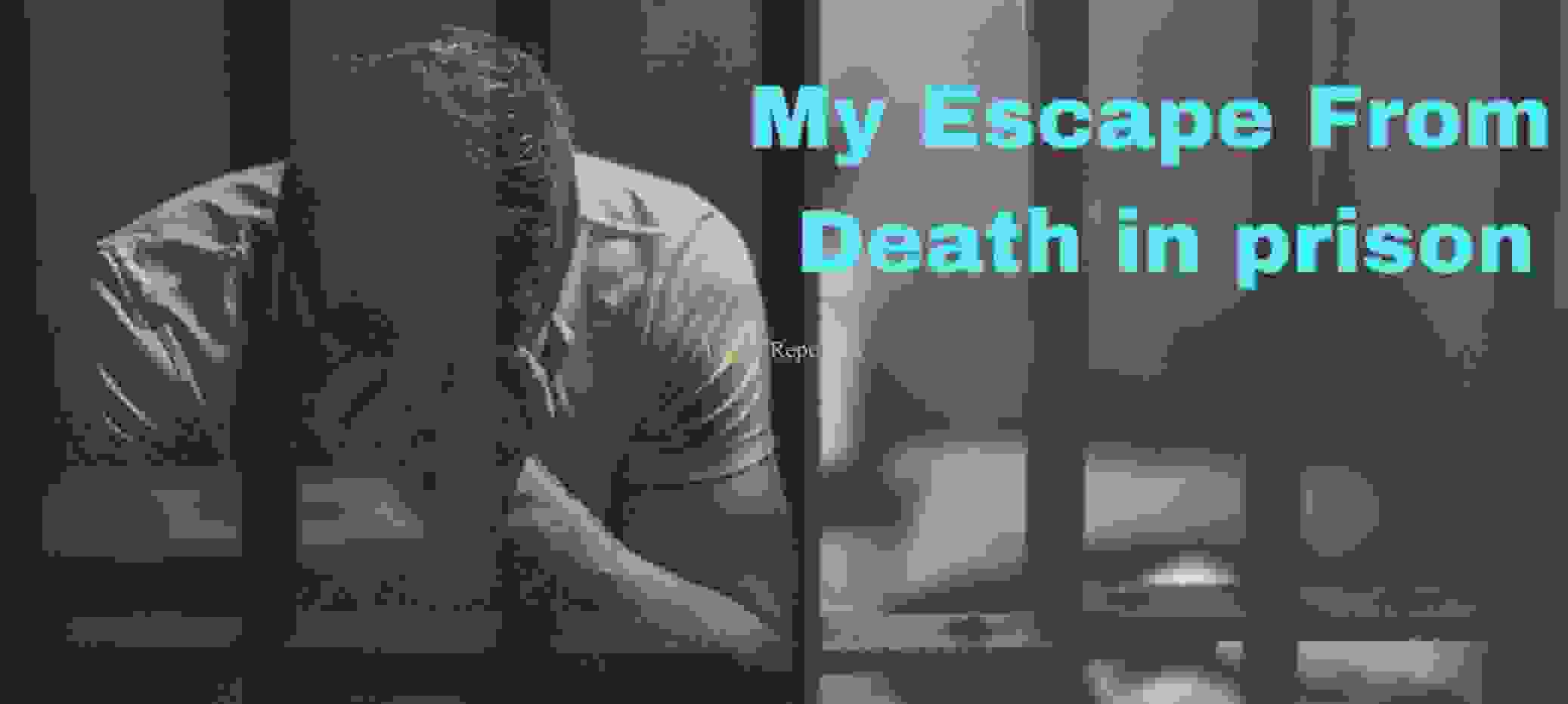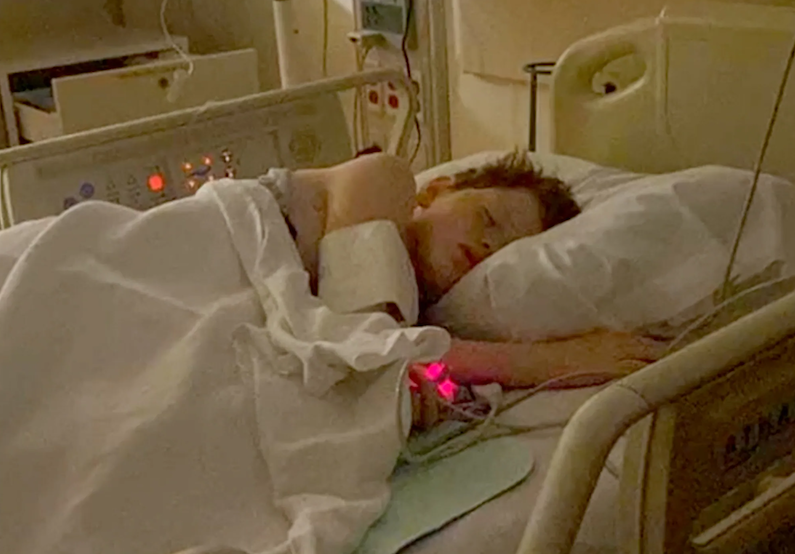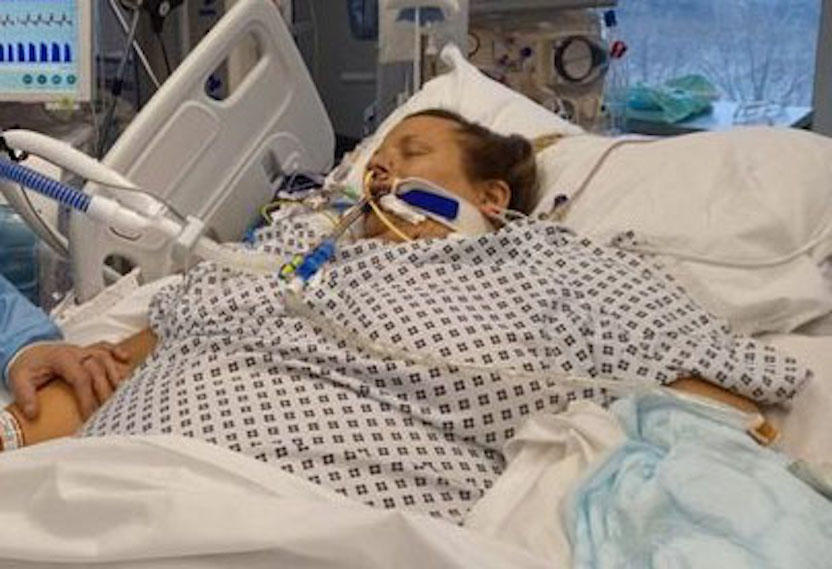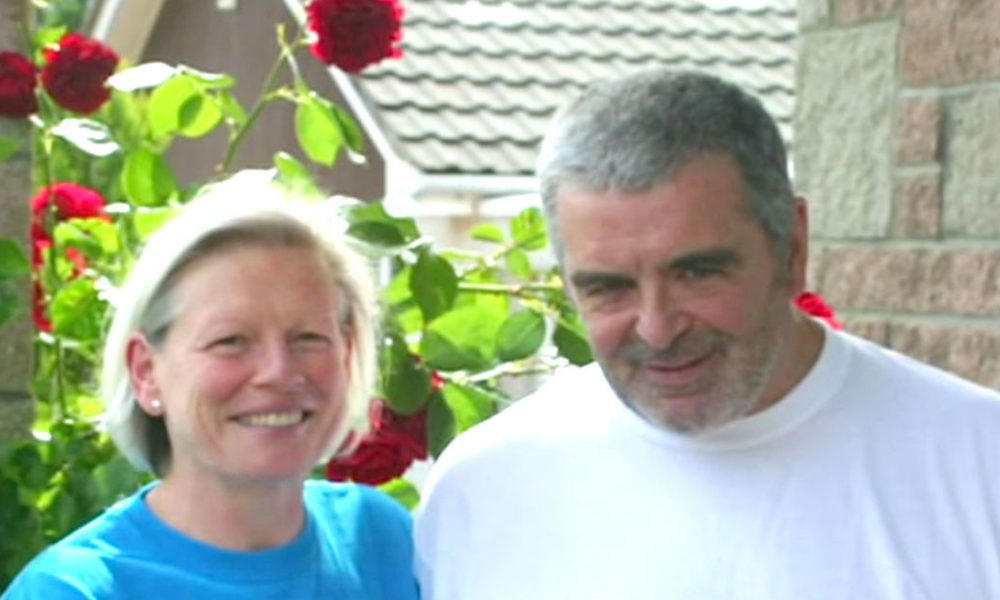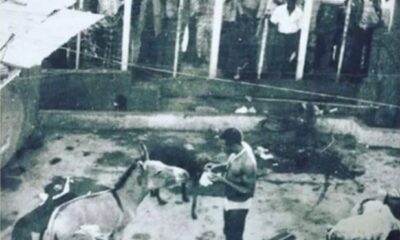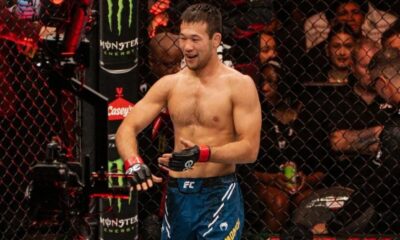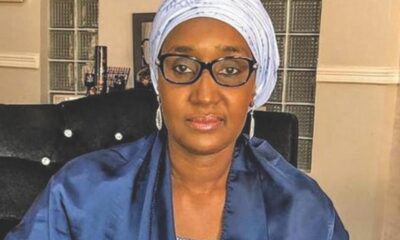I was just a little kid growing up in Cape Town, South Africa. When I was around 3, my dad died in a car accident. My amazing mom then sent me to boarding school at a young age. After finishing high school, I joined the army.
Since there wasn’t a father figure in my life, she tried to be both parents to me. But many times, I needed her to be just a loving and caring mom.

Photo from Pixabay by Whitesession.
My corporate career began promisingly, and I soon discovered my innate talent for entrepreneurship. As I traveled the world seeking business ventures and delving into the illegal diamond trade, life seemed glamorous and fulfilling. However, I failed to recognize how obsession, greed, and self-gratification were gradually taking over.
My life became consumed by materialism, immoral behaviors, and worldly pleasures. Lies and hidden agendas turned into second nature as I broke moral and ethical boundaries to close deals.
In 1994, a decision to steal from an investor and pocket the profits from illicit diamond sales set me on a destructive path. Compulsive gambling became my vice, leading me to VIP lists in casinos worldwide. The more I earned from my dealings, the more I craved to cover my gambling losses. My life spiraled into an unending cycle of making money and gambling it away – a life that had lost all control.
Pay Back Time Came Knocking
I squandered daily fortunes at the casino, oblivious to the immense void I was creating for myself. The thought that I was transgressing against God with each visit to the gambling den never occurred to me. For years, it seemed as though I had eluded the consequences of my actions. Nothing befell me—or so I believed.
However, in 2005, eleven years after committing my crime, a knock on my door shattered my illusion. The police stood before me, warrant in hand.
Under heavy surveillance, I was arrested and taken from my upscale Sandton residence in Johannesburg to Cape Town. There, I faced the magistrate in Goodwood Prison, who would inform me of the charges against me.
On the day of my court appearance, they escorted me to the Bellville Magistrates Court in Cape Town and placed me in ‘Die Gat’ (The Hole)—holding cells deep underground below the court building.
These cells housed hundreds of offenders and prisoners awaiting trial from all over the Western Cape.
The holding cells were dimly lit and perilous, each confining up to 100 hardened criminals—many of whom were repeat offenders on their second, third, fourth, or even fifth offense.
As a “Frans” (a person without a name or affiliation to any gang or Number), I was utterly alone in this unforgiving environment. My only means of survival was to “purchase” whatever I wanted or needed with whatever “commodity” I possessed.

My transformation story
In my fine silk suit, tie, leather shoes, and gold watch, I stood out sharply as a white man. Little did I know that this attire would soon be a thing of the past.
That fateful day, I was viciously attacked by a gang from the Number Gangs. Stripped of all my possessions and brutally beaten, I was left with hardly any teeth remaining in my mouth.
I Sensed Death Looming Near.
Eventually, the police showed up and got me out of that awful cell, moving me to a single one. It still reeked of urine, blood, waste, and death, but at least I was alone and safe for the time being.
Lying on that ice-cold cement floor, I couldn’t tell my tears apart from my blood. That’s when it hit me – I had really messed up. I wasn’t the powerful corporate executive who always had control over everything anymore.
Nor was I that young person at 16 who invited God into my life at the Youth Camp in Stellenbosch to be my Lord and Savior.
I had turned into someone I despised yet found strange comfort in. My wealth and connections to influential people made me feel powerful and in control. But deep down, I was rotten and didn’t even realize I was a criminal.
Though I called myself a Christian, I believed I could get through life on my own. Without even meaning to, I’d pushed away God so many times when all He wanted was to help me find my way back to the salvation I once cherished.
Prayer Sparked Transformation.

Devine intervention
When I was sitting there on that prison floor, all the money and connections I had didn’t matter anymore. I had fallen from the high and lofty, well, respected corporate executive I used to be.
No more introducing foreign businessmen, diplomats, and government officials to South Africa. The only thing I still had was a Bible I brought to court that day.
And then, as I got down on my knees and asked God for forgiveness for everything I’d done and what I was thinking of doing to myself, my Bible just fell open to the Book of Hebrews. As I looked at those two pages in front of me, my eyes landed on Hebrews 10, starting at verse 34.
It said:
“You suffered along with those in prison and joyfully accepted the confiscation of your property because you knew that you yourselves had better and lasting possessions.
So, don’t throw away your confidence; it will be richly rewarded. You need to persevere so that when you have done the will of God, you will receive what he has promised.”
It felt like God showed up in that cell that day and spoke to me personally. I could feel His presence everywhere, and when I opened my eyes, it was like the whole cell was filled with His light.
Overwhelmed with shame, I got down on my knees and asked for forgiveness for all the wrongs I’d done to Him and everyone else.
And then, I prayed for help getting through the tough times ahead – promising that if He helped me, I would dedicate the rest of my life to serving Him.
The True Turning Point.
READ FULL STORY HERE>>>CLICK HERE TO CONTINUE READING>>>
Long story short, I was found guilty of fraud and ended up spending seven years in six of South Africa’s toughest prisons.
I went from Goodwood to Pollsmoor, then to Mdantsane in East London, New Kimberley, Sun City (Johannesburg Central Prison), and finally Zonderwater Correctional Centre in Cullinan. That’s where I finished my Bachelor’s Degree in Systematic Theology.
Eventually, I became a Pastor for over 800 inmates at New Kimberley Correctional Centre and later at Zonderwater Prison.
But the real turning point for me was when I was lying on that freezing cement floor in “Die Gat” (The Hole) at the bottom of the Bellville Magistrates Court.
After a severe beating that almost cost me my life and losing everything but my Bible, I begged God for mercy and grace.
God saved my life many times while I was locked up, but one moment that really stands out was when I was standing in the courtyard of Pollsmoor Prison’s “Awaiting Trial” section – one of the most dangerous areas there.
The Dark Underworld of South African Prisons
As I grew accustomed to the rhythm of prison life, I made sure to keep my back to the walk-in for protection against personal threats.
I observed the Number Gangs, hardened criminals divided primarily into three groups: the 26s, 27s, and 28s, each more dangerous and ruthless than the last.
These Number Gangs are named for their specific functions within the prison system. The “number” represents not just a code of honor—although affiliating with a brutal criminal organization hardly seems honorable—but also a code that traces back decades in our history.
Interestingly, the origin of these gangs isn’t rooted in prison but rather in the mines, where workers needed identification in low-light areas.
The miners used these codes and a special language called “Number” to identify themselves according to their work level and conceal their activities. Eventually, some of these men were arrested and imprisoned, and they continued to use this code of association, conduct, and language, giving rise to today’s “Number Gangs.”
Nowadays, Number gangs exert control over prisons throughout South Africa. For many newcomers (“Franse”), joining a Number Gang becomes the only means of obtaining much-needed protection for survival.
Operating like military regiments, Number Gangs have rules, strategies, codes of conduct and language, discipline, and even ranks such as General, Colonel, Captain, Lieutenant, and Judges. These ensure that the gang’s code is enforced and respected within prison walls.
One day I witnessed a chilling event: a ‘sabella’ (a hit ordered on someone—typically resulting in bloodshed) carried out within the prison. This violent act occurs when anything or anyone threatens the Number’s territory or authority.
A Shocking Turn of Events

That day, as a lower-ranking member of one of the Number Gangs approached me in the courtyard, I steeled myself mentally and emotionally for a fight to the death. Time seemed to slow down as I questioned where I would end up if I died that day—heaven or hell? My son’s image flashed before my eyes, but I couldn’t afford to let my emotions take over.
I quickly drew upon my military training and martial arts experience, focusing on raw survival instincts and setting fear aside. The gang member wielded a large knife capable of causing severe harm, and I braced myself for the impending fight. Just then, the unexpected occurred.
Instead of turning on me, the would-be assassin attacked another prisoner nearby, stabbing him repeatedly. Amidst the chaos, I faced a choice: stand by and watch a fellow human die or intervene. I chose the latter, and this decision would change my life in prison forever.
Leaping into action like I was back on a military operation, I grabbed the attacker from behind, spun him around, and declared in a mix of prison Afrikaans that if he had to kill someone that day, he should take my life instead of the stranger.
To everyone’s astonishment, this white newcomer (“a Frans”) had interrupted a gang war to save a black man’s life. Shocked by my actions, the attacker dropped his knife and walked away.
Afterward, I helped the bleeding stranger up from the floor. He turned out to be the leader of the very same gang that was trying to kill me.
That fateful night in our prison cell, I was summoned by the high-ranking members of the Number gangs, who demanded an explanation for my actions.
They were curious about my identity and the reason behind saving that man’s life. I confessed to being “a Frans” – a nobody, but that I couldn’t stand and watch a man being killed in front of me regardless of his gang affiliation, race, or greed.
By night’s end, the Number gangs granted me a pardon and bestowed upon me a bulletproof vest – ensuring protection and privileges during my time in Pollsmoor that were usually unattainable for someone like me.
To this day, I firmly believe that divine intervention saved me from certain death in that sinister world. It was through this experience that I managed to survive six of the country’s most infamous prisons.

Divine intervention
My story jumped, as they say, over the walls from prison to prison and followed me as a testament to my willingness to help fellow inmates, regardless of our differences.
Upon leaving Pollsmoor and transferring to Mdantsane Prison in the Eastern Cape, I faced the cruel reality of incarceration. The harsh conditions inside forced me to adapt quickly to my brutal and dehumanizing surroundings. To survive, I had to employ every ounce of intellect in assisting fellow inmates with parole submissions, appeals, written motions, and other applications.
At the time, I didn’t fully grasp the situation. However, my suffering and isolation were undeniably part of a divine plan. It allowed me to rebuild my moral foundation, deepen my understanding of God’s Word, and develop obedience, surrender, compassion, commitment, and empathy toward others. Above all else, it led me to truly comprehend God’s nature and what it meant to be a devoted follower.
The Honour Program
Following my sentencing, I sought a transfer to Gauteng, where my grandparents were looking after my son. Regrettably, a mix-up by the authorities led me to become the first inmate in South Africa’s most modern prison facility. Alas, my time there was brief.
Ultimately, I was relocated to Zonderwater Correctional Centre. There, I embraced the crucial process of rehabilitation and embarked on my journey toward obtaining a Bachelor’s Degree in Systematic Theology. Additionally, I took up the role of an educator within the prison, assisting fellow inmates in acquiring reading and writing skills.
The Profound Influence of Spirituality in Recovery and Reassimilation

One night, I had this revelation – the words “Honor Program” came to me, and suddenly everything started to make sense. I mean, why do we have so much discrimination, corruption, gender-based violence, abuse, hatred, and anger in our country?
We’ve been trying to solve problems with our youth, schools, universities, and communities on our own without seeking divine guidance. It took me over seven years to write The Honor Program. In essence, it’s an advanced restorative justice intervention that focuses on rehabilitation through soul transformation.
When I left prison, I knew reintegration wouldn’t be easy for me as a white, middle-aged man without a strong support system or family and friends willing to help me start over. I realized that trusting God entirely was my only way out and staying focused on Jesus despite any pain or suffering.
One thing I’ve learned since leaving prison is that we can’t go through life alone; we need people to help others who might be struggling and desperate to get back on their feet.
I’ve got so many people to thank, aside from God, for saving my life after I left prison. There have been times when I just wanted to give up, but somehow, God always sent someone my way who was willing and able to help me see that there’s always hope – no matter how tough or complicated things get.
Life’s never a walk in the park when you don’t have a home and you have to rely on others for basic needs like shelter, transport, food, and clothes.
I’m really grateful that I had the chance to work as an Evangelist at African Enterprise for a few years. Sadly, though, my short-term contract ended in 2020. Just so you know, African Enterprise is this amazing ‘non-profit’ Christian Evangelical Missionary organization right in the heart of Pietermaritzburg, Kwa-Zulu Natal.
God has transformed my soul. He’s my Rock and my Salvation – I’ll trust Him until my last breath.
Thanks for reading my story. If it touched you in any way, I hope and pray that you’ll pass it on to someone who could benefit from this message.
If God has done something to change your life or save you from eternal death, I would encourage you, my friend, to step out in faith and share that message with others. This is the one way we can be sure to draw unbelievers to Christ.
If you have not made Jesus your Lord and Savior, please do not waste time anymore. What shall it profit you if you gain the whole world and lose your soul in Hell? Mark 8:36 . Come to the loving arms of Jesus Christ. Repent of your sins and receive His forgiveness.
. Come to the loving arms of Jesus Christ. Repent of your sins and receive His forgiveness.
Please say this prayer if you have not made Jesus your Lord from the depth of your heart.
Lord, Jesus. I believe you are the son of God. I believe you died and rose again for my sins. You alone can save me. I am very sorry for my sins. I repent of my sins by your grace. Please forgive me and come into my life. Be my Lord and Savior. Help me to grow and know you more. Thank you for saving me.
Now, work toward your confession and find a bible believing church. Commit by reading the bible daily and hearing the word with other believers.






 . Come to the loving arms of Jesus Christ. Repent of your sins and receive His forgiveness.
. Come to the loving arms of Jesus Christ. Repent of your sins and receive His forgiveness.
